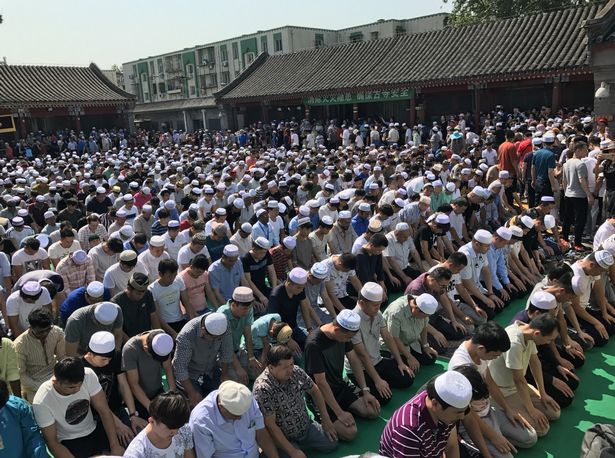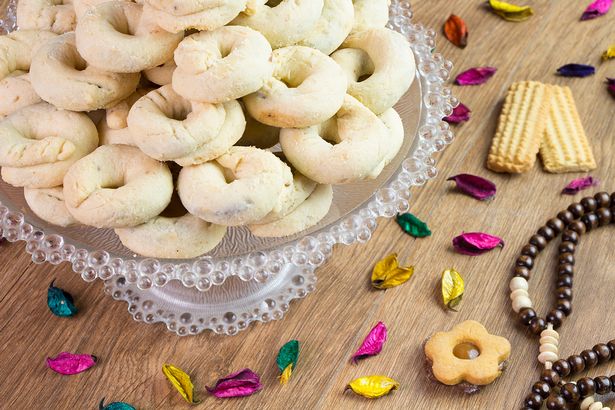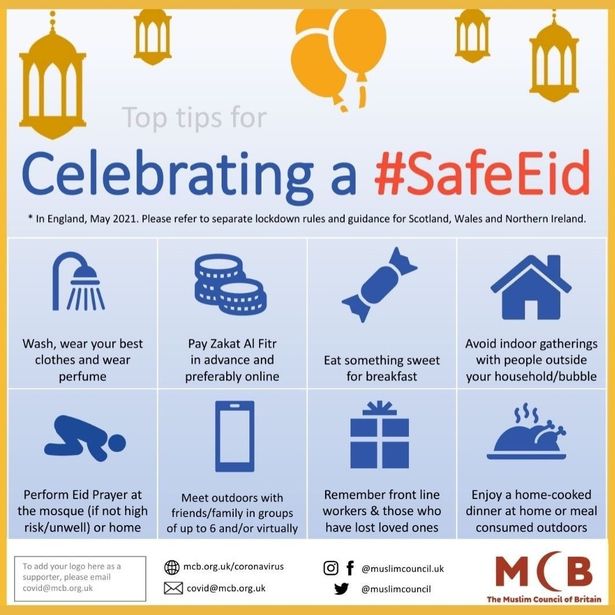Eid Mubarak! Ramadan, one of the holiest months of the Islamic calendar comes to an end today with Eid al-Fitr celebrations.
For the past four weeks millions of Muslims around the world have been observing Ramadan by fasting between sunrise and sunset.
This is considered one of the five pillars of Islam, along with reading the Quran and performing charitable acts.
Eid al-Fitr also marks the beginning of Shawwal, the 10th month of the Islamic calendar.
The date this starts is decided by the sighting of the new moon, which sometimes varies by country.
So for those who go by when the crescent moon is spotted in Saudi Arabia, Eid 2021 will start today, on May 13. But for other countries, they may celebrate Eid from Friday, May 14.
How is Eid al-Fitr celebrated?

(Image: Getty Images)
Eid al-Fitr means “festival of breaking the fast” in English, and comes directly after Ramadan. It starts at sunset on the final fasting day.
Traditionally, Muslims will gather at mosques in the morning to perform Eid prayer.
They will then gather with friends and family to eat delicious food, sweets and even exchange gifts.
People will also usually greet each other with “Eid Mubarak”, which means “blessed Eid”, although there are other greetings used.

(Image: Getty Images/iStockphoto)
Celebrations last up to three days, and are used to give thanks to Allah for helping them complete their spiritual fasting – and to ask forgiveness.
Many also donate money and food to the poor. This kind of charitable donation during is called Zakat al-Fitr.
In Muslim countries the three days of Eid are public and school holidays, but this is not the case in the UK.
However, many employers allow people time off to celebrate Eid.
Due to coronavirus lockdown restrictions, mass gatherings in the UK won’t be allowed.

(Image: xxxxxxxxxxx)
But groups of up to six people from different households, or two households of any size can meet outdoors.
The Muslim Council of Britain (MCB) has also issued a guide on how Eid can be celebrated safely.
MCB’s Secretary-General, Zara Mohammed said: “British Muslims have shown great resolve and patience throughout this pandemic, especially during Ramadan for the last two years, as we have adapted to innovative ways of observing the biggest occasions in our Islamic calendar.
“Many British Muslims will have also received their first or second vaccine dose during Ramadan. As we celebrate a #SafeEid, whether vaccinated or otherwise, it is important we continue to take the utmost care when protecting our loved ones and observing public health guidance, whilst looking forward with hope, determination and faith.
“May we also use this blessed day to remember all those who have lost loved ones, our front-line key workers and pray for a swift and full recovery from the pandemic.”


